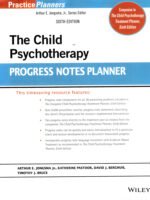Stress Management offers a range of coping strategies that will help students formulate a well-rounded plan to tackle stress from multiple angles—before it occurs, while it is occurring, and after it occurs. That model is centered on four primary pillars:
- Source management—reducing or eliminating stress at its source
- Relaxation—employing techniques for breathing, meditation, and rest to focus the mind and relax the body
- Thought management—adopting a thought process to better manage the stressor
- Prevention—avoiding stress when possible
The book also offers practical tools to help students learn how to identify their triggers, practice self-care, and leverage support, including knowing when to seek professional help when necessary. To further aid in applying the strategies to their own lives, the text includes these features:
- Case studies with discussion questions that prompt students to consider real-world scenarios and contemplate ways to solve those stressors
- Research Spotlight elements that present current issues and hot topics related to stress
- Online learning tools, delivered through HKPropel, including audio mini lectures and short interviews, self-discovery activities, chapter quizzes that are automatically graded and provide immediate feedback, and vocabulary flash cards and quizzes
Stress Management is a timely and highly practical book that offers students a deeper understanding of stress and its effects on overall wellness. It guides them in putting together a stress management plan that will help them be healthy in all aspects of their lives.









Be the first to review “Stress Management: Developing Resilience in an Evolving World (Imported)”